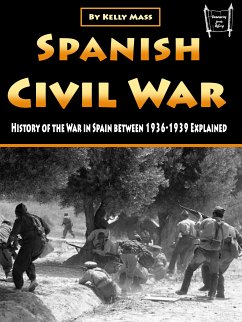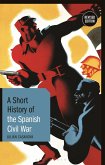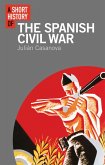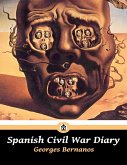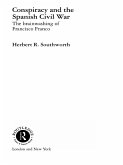The Spanish Civil War spanned from 1936 to 1939 and was a domestic conflict in Spain. The Nationalists, comprising Falangists, monarchists, conservatives, and traditionalists, rallied around General Francisco Franco and sought to overthrow the left-leaning Popular Front government of the Second Spanish Republic, forming an alliance with communists and syndicalist anarchists. The war garnered various interpretations globally, seen as a class struggle, a clash between dictatorship and democratic republicanism, and a power struggle between fascism and communism. Claude Bowers, the U.S. ambassador to Spain during World War II, even referred to it as a "dress rehearsal." The Nationalists emerged victorious in early 1939 and dominated Spain until Franco's death in November 1975.
The conflict began with a pronunciamiento against the Republican government, led by General Emilio Mola with General José Sanjurjo as a figurehead. President Manuel Azaña headed the coalition of Republicans, backed by communist and socialist parties in the Cortes. Supporting the Nationalist faction were CEDA, monarchists (including Alfonsists and conservative Carlists), and the fascist political party Falange Española de las JONS. Franco eventually emerged as the dominant leader of the Nationalists after the demise of Sanjurjo, Emilio Mola, and Manuel Goded Llopis.
The conflict began with a pronunciamiento against the Republican government, led by General Emilio Mola with General José Sanjurjo as a figurehead. President Manuel Azaña headed the coalition of Republicans, backed by communist and socialist parties in the Cortes. Supporting the Nationalist faction were CEDA, monarchists (including Alfonsists and conservative Carlists), and the fascist political party Falange Española de las JONS. Franco eventually emerged as the dominant leader of the Nationalists after the demise of Sanjurjo, Emilio Mola, and Manuel Goded Llopis.

